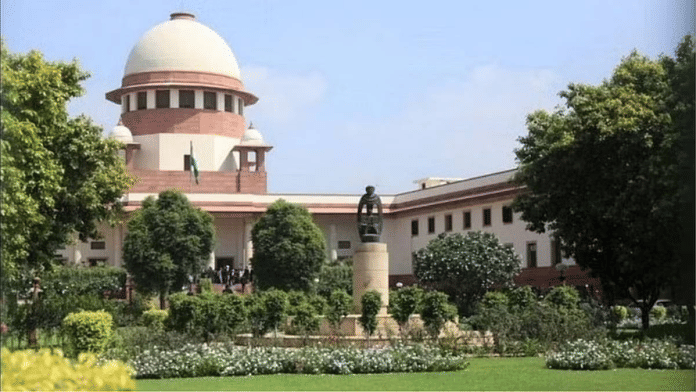New Delhi: Highlighting the importance of a registered marriage in civil matters such as residence, inheritance and insurance, the Supreme Court Thursday issued directions to 17 states and seven Union Territories to frame rules and create a mechanism within four months to register Sikh marriages (Anand Karaj).
The rules have to be framed under the Anand Marriage Act, 1909, which, following an amendment in 2012, included the registration provision.
A bench of justices Vikram Nath and Sandeep Mehta observed that non-implementation of more than a decade-old statutory requirement violated the principle of equality as it denied a right available to the Sikhs.
“The fidelity of a constitutional promise is measured not only by the rights it proclaims, but by the institutions that make those rights usable,” the bench said.
It put emphasis on section 6, which was added to the 1909 Act in 2012 to allow registration of Sikh marriages, and noted the same was done to recognise Anand Karaj as a valid form of marriage.
However, the states had failed to create a machinery for the same, leaving the promise half kept.
“In a secular republic, the State must not turn a citizen’s faith into either a privilege or a handicap….what remains is to ensure that the route from rites to record is open, uniform and fair,” the Court observed.
Until states notify the law, which can be done only after they are published and placed before the respective legislatures, the Sikh marriages would be registered under the existing general marriage laws, said the court. And, wherever the parties request, the marriage certificate must explicitly mention the “Anand Karaj” rite. This would ensure that no citizen is denied proof of marriage, the court said.
The court order came on a public interest litigation, claiming that Sikh couples faced acute hardship due to the uneven access to a statutory facility across states and Union Territories. This led to unequal outcomes for similarly situated citizens.
The PIL sought implementation of section 6 of the Anand Karaj Act, 1909.
Also Read: What is ‘cruelty’ in marriage? No clear definition by courts but meaning has broadened over time
Positive duty on every state
On perusing the provision, the court remarked that the legislative scheme imposes a positive duty on every state government to create a workable registration machinery for Anand Karaj marriages.
Framing of rules was not dependent upon the Sikh population, nor can it be deferred on the ground that other marriage laws exist in parallel. Though the law does not invalidate a non-registered Anand Karaj marriage, it, at the same time, does not dilute the obligation to frame rules, the court noted.
“In a secular framework that respects religious identity, while ensuring civic equality, the law must provide a neutral and workable route by which marriages solemnised by Anand Karaj are recorded and certified on the same footing as other marriages,” the court said, as it spoke about the relevance of a marriage certificate as a significant legal document that serves as proof of status for residence, maintenance, inheritance, succession and enforcement of monogamy.
The certificate, in particular, safeguarded the interest of women and children who depend on documentary proof to claim legal protections, the court emphasised.
Lack of a statutory framework will not be a ground to refuse registration of an Anand Karaj marriage, the court asserted. Any refusal, the court added, shall be explained in writing and can be challenged before the court.
The bench went on to frame a timeline for the states to implement the rules.
The court said states that have already notified them shall continue to operate them. Within three months, such states shall issue a clarificatory circular to all registering authorities and publish on the official portal the applicable forms, fees, documents required, and timelines.
No authority shall insist on an additional or duplicative registration under any other law once registration under the Act is granted, the court ordered.
Every state, within two months, will designate a secretary-level nodal officer to oversee compliance with the court order, to issue any consequential administrative directions, and to address grievances regarding receipt and certification of Anand Karaj marriages, said the court.
Notifying the Centre as a coordinating authority, the court said, it shall circulate model rules compiled from jurisdictions that have already notified marriage registration rules to states or UTs that seek guidance.
Within six months, the Centre shall compile and present a consolidated status report before the court. Apart from handing over a compliance report to the court’s registry, the same information shall also be placed on the website of the Ministry of Law and Justice, the court directed.
(Edited by Ajeet Tiwari)
Also Read: SC says registered Hindu marriage invalid without requisite ceremonies. ‘Can’t trivialise process’






